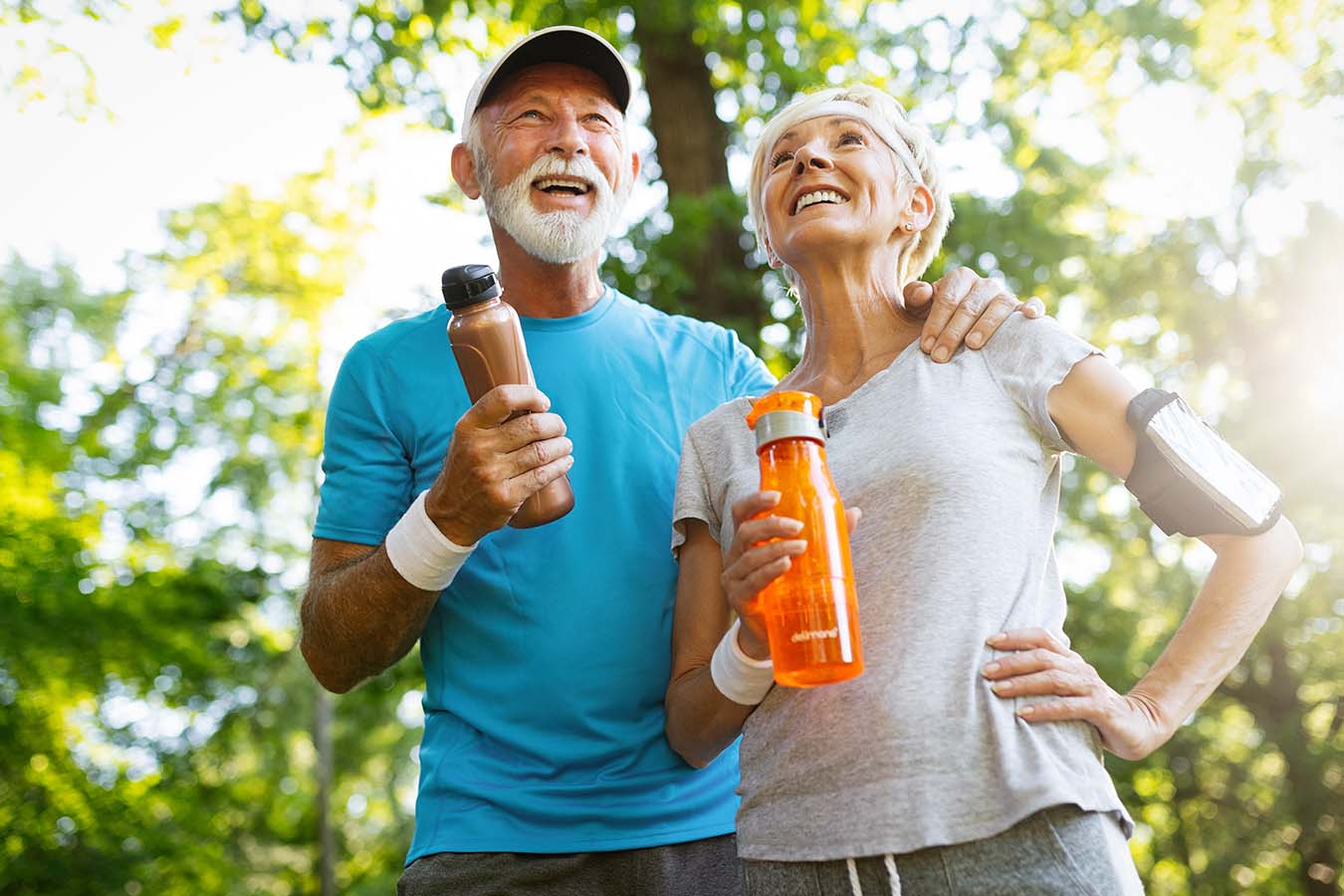Water is an important part of a healthy body. While the average percentage of water in a person’s body is around 60%, it does vary depending on age, sex, and hydration levels. There is no dispute that staying hydrated is vital to staying healthy. Hydration helps control body temperature, aids digestion, reduces the risk of urinary tract infections and is essential for overall organ health. The recommended daily intake of fluids from beverages and food is 48-64 ounces each day.
As we get older, we can more easily become dehydrated. Medications can impact the ability to store fluids in the body, and the older we get, the more our sense of feeling thirsty diminishes. If you are aware, you can catch the signs of dehydration early.
Signs and Symptoms of Dehydration
- Being thirsty, dry mouth
- Flushed skin, headache, fatigue or changes in physical endurance
- Dizziness, weakness, muscle cramps, labored breathing
- At extreme dehydration, swollen tongue, muscle spasms, and delirium
You do not have to drink only water to get hydrated. Many foods aid in hydration, including soups, juices, many fruits, seltzer water, tea, gelatin and cooked veggies. Be aware of how much sugar is in any non-water beverage as it can affect those with diabetes or who are on certain medications – try a 50/50 mix of juice and water. Getting at least five servings of fruit and vegetables per day is good for your health and adds to your total water intake.
5 Tips to Improve Hydration
- Drink fluids before you feel thirsty
- Carry a water bottle filled with water
- Set a timer to remind you to drink during the day
- Stay away from sugary drinks, caffeine and alcohol
- Stay out of the direct sun

